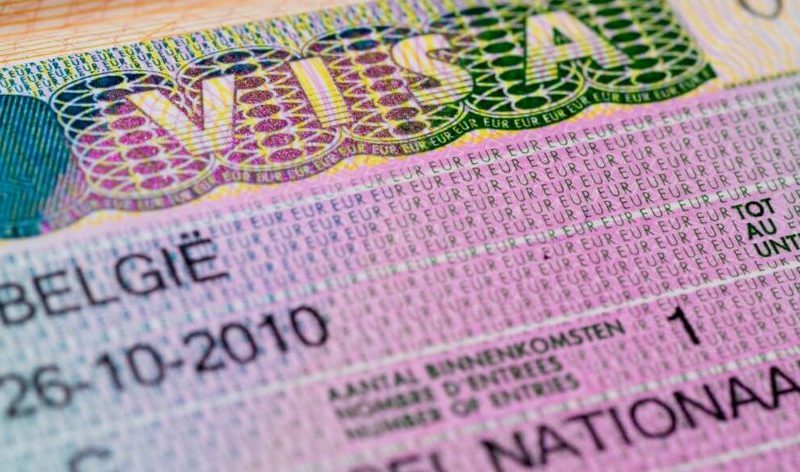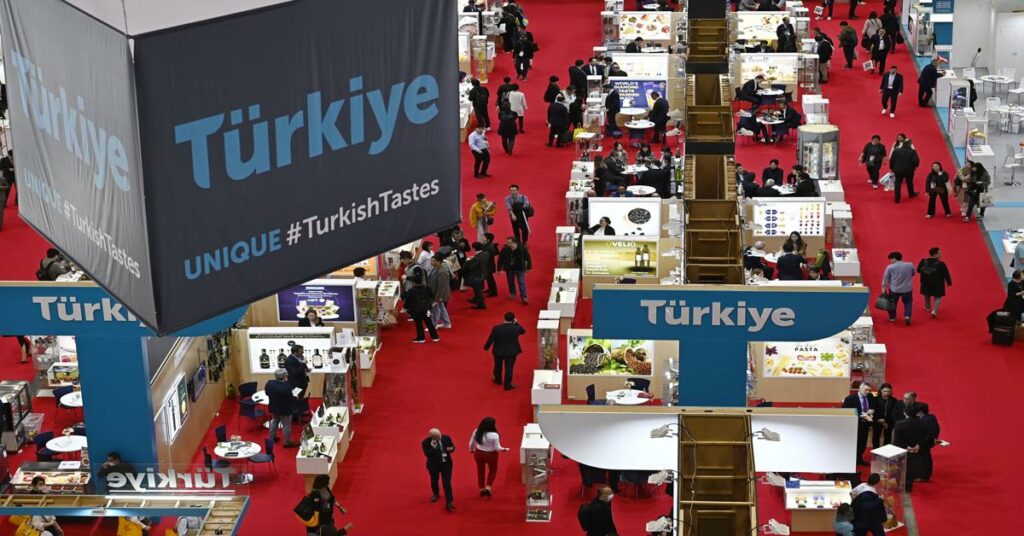
Istanbul Chamber of Commerce (ICOC) President Sekib Avdagic has criticized the European Union over the ongoing visa issues affecting the business sector. Avdagic pointed out that despite claims of increased visa applications, the real problem lies in redundancy.
"They say the number of applications has risen and they can’t keep up. But short-term visas, such as those for one week, one month, or three months, force people to reapply. There is no increase in applications; there’s a redundancy issue," he remarked.
The 60th edition of the SIAL Paris Food Fair, held under the theme "Exploring the Future of Food," showcased over 7,500 companies and more than 400,000 products. The event attracted 8,000 major food buyers with a purchasing power of 50 billion euros ($53.92 billion).
Türkiye, represented by the Istanbul Chamber of Commerce, achieved a record-breaking participation, with 346 companies from 37 provinces joining under the national pavilion. Additionally, 52 Turkish firms participated with individual stands.

Speaking at the SIAL Paris Food Fair, where he addressed questions from journalists about the visa problem and the food industry’s potential, Avdagic stated that all relevant government bodies, starting from the president to the Ministry of Foreign Affairs, were actively working to address the issue.
"This is a matter that can be resolved at the state level. As the Istanbul Chamber of Commerce, we regularly share our views with high-level EU officials from the perspective of the business world. We hope progress will be made in a reasonable timeframe," he said.
Highlighting a repetitive stance from EU officials during their discussions, Avdagic pointed out, "First, they claim that visa applications have increased and they can't keep up. Secondly, they assert that the number of applicants who do not return is rising. We’ve made it clear to them that neither of these claims is accurate. When applicants are given short-term visas – such as one week, one month, or three months – they are forced to reapply. This redundancy creates the perception of increased applications."
Avdagic criticized the EU's justification of the visa issue with the refugee crisis, calling it contradictory and lacking technical validity. "You claim that people stay as refugees. But whether you give them a one-week visa or a 10-year visa, it doesn’t change their decision to stay if they intend to. Short-term visas don’t deter people from staying; there is no technical basis for this claim," he emphasized.
He further explained that while macro-level solutions have been discussed, the issue directly impacting the Istanbul Chamber of Commerce mainly revolves around foreign trade.
Avdagic noted that although the EU often complains about commercial pressure from China, it simultaneously creates barriers for Turkish businesspeople by issuing short-term visas or none at all.
"We tell European diplomats that they are not giving our businessmen, who want to buy machines, the opportunity to come to their countries. Then they complain about China dominating the market. You are hurting your own interests," Avdagic concluded.

Avdagic’s remarks underscore the broader frustration among Turkish business leaders who believe that restrictive EU visa policies are harming both trade relations and potential economic collaborations.
He calls for a more reasonable and supportive approach to strengthen ties between Türkiye and Europe, urging the EU to reconsider its current stance.
In conclusion, ICOC President Sekib Avdagic's critique highlights the need for the EU to address its restrictive visa policies, which he argues are not only creating redundancy but also hindering trade relations. By easing these barriers, both Türkiye and Europe could benefit from stronger economic collaboration and mutual growth.